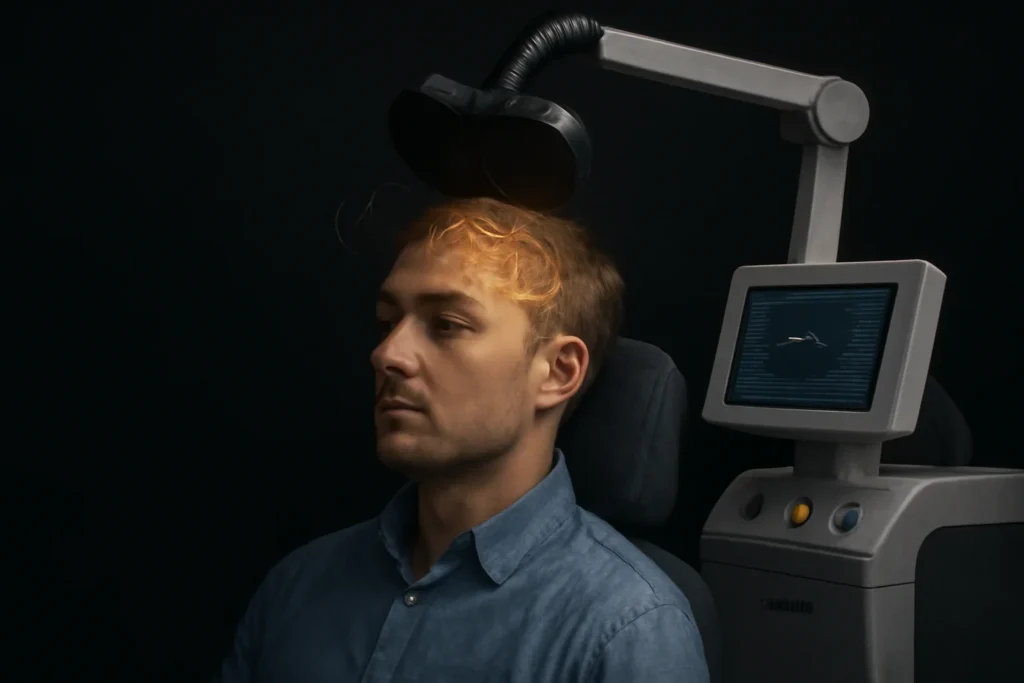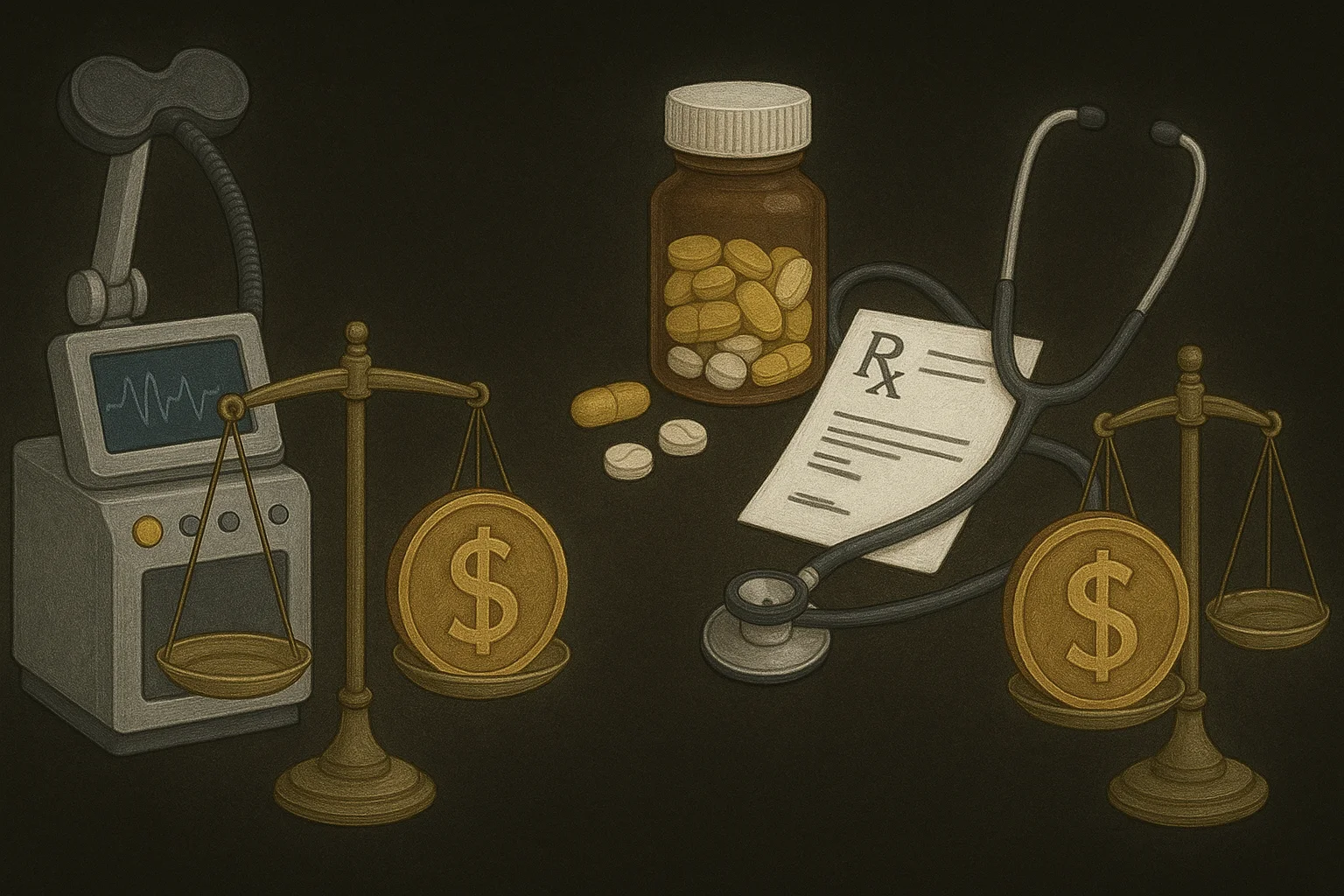Understanding the cost of mental health treatments is a key part of making an informed decision about which therapy is right for you. Transcranial Magnetic Stimulation (TMS) therapy has gained popularity as an alternative treatment for depression, especially for individuals who have not found success with traditional treatments.
In this article, we will compare the cost of TMS therapy with that of traditional treatments like medication and psychotherapy, exploring the financial and therapeutic benefits of choosing TMS.
Understanding the Cost of Mental Health Treatments
Mental health treatments come in many forms, and their costs can vary significantly depending on the approach and the duration of the treatment. Depression, one of the most common mental health conditions, often requires ongoing treatment, and for some individuals, the costs can add up over time.
TMS therapy is a relatively new and non-invasive treatment that is gaining traction as an effective solution for individuals struggling with depression, especially those who have not responded well to medication.
However, before deciding on a course of treatment, it is important to understand the financial implications of TMS therapy compared to traditional treatments. In this article, we’ll break down the costs of TMS therapy and provide a comparison with other options, so you can make a more informed decision.
What is TMS Therapy and How Does It Work?
Transcranial Magnetic Stimulation (TMS) therapy is a non-invasive procedure that uses magnetic fields to stimulate specific areas of the brain. These magnetic pulses are believed to help improve brain activity and alleviate the symptoms of depression. TMS therapy is typically administered over several sessions, and many patients experience noticeable improvements in mood and mental well-being.
Understanding TMS Therapy Cost
The cost of TMS therapy can vary depending on several factors, including the number of sessions required, the provider you choose, and whether your insurance covers the treatment. On average, TMS therapy can be expensive, especially when considering the full course of treatment, which usually consists of 20-30 sessions. However, the long-term benefits and minimal side effects make it a worthwhile investment for many patients.
What Influences the Cost of TMS Therapy?
Several factors can influence the cost of TMS therapy, including:
- Location: The cost of TMS therapy may vary based on where you live and the provider you choose.
- Provider: Different treatment centers may have different pricing structures for TMS therapy.
- Number of Sessions: The average cost of TMS therapy will depend on how many sessions are required for effective treatment, with some patients needing additional maintenance sessions.
- Insurance Coverage: Some insurance plans cover TMS therapy, which can significantly reduce the out-of-pocket expenses for patients.
How Much Does TMS Therapy Cost?
The cost of TMS therapy can range from $300 to $500 per session, with the total cost of treatment typically falling between $6,000 and $12,000 for the entire course of therapy. Some individuals may need fewer sessions, while others may require additional treatments for maintenance.
While the cost of TMS therapy might seem high at first glance, it is important to consider the long-term benefits, including its ability to help individuals reduce or eliminate the need for medication. Many patients experience sustained improvement, potentially reducing the need for ongoing treatments or hospital visits.
Insurance Coverage for TMS Therapy
Insurance coverage for TMS therapy has improved in recent years, with many major insurers recognizing TMS as an effective treatment for depression. However, coverage can vary widely depending on the insurance plan and provider. It is important to check with your insurance company to determine if TMS therapy is covered under your policy and what your out-of-pocket costs may be.

Cost Comparison: TMS Therapy vs. Traditional Treatments
Now let’s compare the cost of TMS therapy with traditional treatments such as medication and psychotherapy.
Traditional Treatment Costs (Medication and Therapy)
The cost of traditional depression treatments often includes both medication and psychotherapy sessions.
The average cost of antidepressant medications ranges from $4 to $20 per month, but this can increase if you need prescription changes or higher doses.
Additionally, psychotherapy sessions typically cost between $100 and $250 per session, depending on the provider and location. Many patients require weekly or bi-weekly sessions, which can quickly add up over time.
While medication and therapy can be effective for many, they often come with side effects, and some individuals may not experience significant improvements. Furthermore, the ongoing cost of medication and therapy can continue for months or even years.
Comparing the Total Cost of TMS Therapy vs. Medication and Therapy
When comparing the total cost of TMS therapy with medication and psychotherapy, TMS can offer long-term financial benefits. While the upfront cost of TMS therapy may seem high, it is typically a one-time expense for each course of treatment.
Once treatment is completed, many patients experience lasting improvements in their depression symptoms, reducing or even eliminating the need for ongoing medication and therapy.
For example, if you are paying $150 per therapy session weekly for a year (roughly $7,800 annually), and your antidepressant medication costs $20 per month ($240 per year), the total cost of traditional treatments can amount to over $8,000 in one year.
In contrast, a full course of TMS therapy may cost $6,000 to $12,000, but once the treatment is complete, you may no longer need ongoing medication or frequent therapy sessions.
The Financial Benefits of TMS Therapy Over Time
While TMS therapy may seem expensive upfront, the potential for long-term financial savings is significant. Patients who undergo TMS therapy often experience sustained relief from depression, reducing the need for continuous medication or frequent therapy sessions. This means fewer prescription refills, fewer therapy appointments, and a more cost-effective treatment plan over time.
How Does the Cost of TMS Therapy Compare to Electroconvulsive Therapy (ECT)?
Electroconvulsive Therapy (ECT) is another treatment option for severe depression. While ECT is highly effective for some individuals, it involves anesthesia and the potential for memory loss, making it a more invasive option compared to TMS. The cost of ECT therapy is typically higher than that of TMS therapy due to the use of anesthesia and the hospital setting in which it is performed.
Cost of ECT vs. TMS Therapy
The cost of ECT can range from $1,000 to $1,500 per session, and patients typically require 6 to 12 treatments. This means the total cost of ECT can range from $6,000 to $18,000, which can be higher than the TMS therapy cost. In addition to the financial costs, ECT also requires more time for recovery and may have side effects that some patients find intolerable.
Insurance and Payment Options for ECT vs. TMS
Like TMS therapy, many insurance companies cover ECT treatment. However, the out-of-pocket expenses may still be significant, especially when considering the cost of anesthesia and the hospital setting. For some individuals, TMS therapy may be a more affordable and less invasive option, with comparable results.
Factors to Consider When Choosing Between TMS and Traditional Treatments
When deciding between TMS therapy and traditional treatments like medication or psychotherapy, it’s important to consider several factors beyond just the cost. These include:
- Effectiveness and Treatment Time: TMS therapy often leads to faster results compared to medication, with some patients experiencing significant improvement after just a few sessions.
- Side Effects and Impact on Daily Life: TMS has minimal side effects compared to medication and ECT, and most patients can resume their normal activities immediately after a session.
- Long-Term Financial Considerations: While TMS therapy may be more expensive upfront, it could lead to long-term savings by reducing the need for continuous medication and therapy.

Conclusion: TMS Therapy Cost vs. Traditional Treatments
In conclusion, the TMS therapy cost can be higher upfront compared to traditional treatments like medication and therapy. However, the long-term benefits of TMS therapy—such as its ability to provide lasting relief with minimal side effects—make it a valuable option for individuals suffering from depression. When comparing the total costs over time, TMS therapy can be more cost-effective than continuing medication and therapy.
If you are struggling with treatment-resistant depression, TMS therapy may be a viable treatment option to explore. Be sure to consult with your healthcare provider to understand the costs and insurance coverage for TMS therapy in your area.
